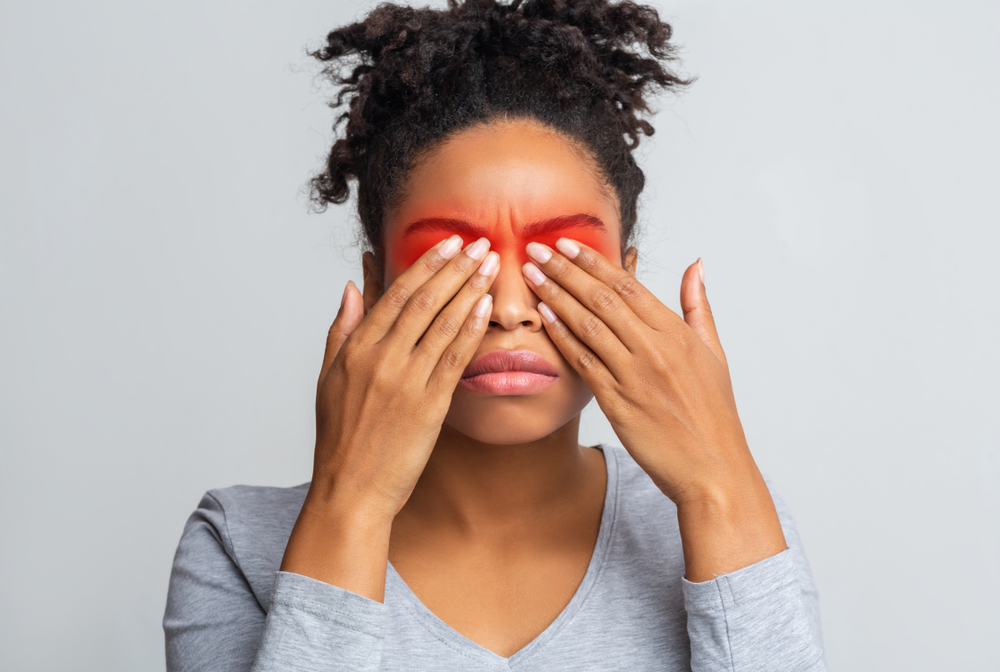
Dry eyes are a common experience for most people. Various lifestyle habits and environmental factors, such as phone use and low humidity, can cause acute irritation. However, dry eye syndrome or chronic dry eye is a more serious condition beyond temporary dryness. Prolonged, frequent, and severe dry eye symptoms characterize this progressive condition.
What Is Dry Eye Syndrome?
Dry eye syndrome is an irritating eye condition. It occurs when the eyes either do not produce adequate tears or produce poor-quality tears that evaporate too quickly. That can lead to dry, red, and irritated eyes, as well as impaired vision.
Symptoms
Dry eye syndrome symptoms may include the following:
- Dryness and irritation of the eyes.
- Eye irritation or a burning sensation.
- A feeling that there's a speck in your eye.
- Red eyes.
- Vision distortion.
- Grittiness or a foreign body sensation in the eyes.
- Eyestrain.
- Light sensitivity.
- Difficulty wearing contact lenses.
- Causes
Several factors can contribute to dry eye syndrome, including the following:
Age
Dry eyes are more common in older people. Tear production naturally decreases as people age, which can contribute to dry eye syndrome.
Environmental Factors
Dusty or dry environments and exposure to air pollution and wind can exacerbate dry eye syndrome. Such conditions can cause tears to evaporate faster, resulting in eye dryness.
Medical Conditions
Certain medical conditions such as Sjögren's syndrome, autoimmune diseases, and diabetes can contribute to eye dryness. Sjögren's syndrome, for example, affects the glands that produce tears and saliva, resulting in eye and mouth dryness. Autoimmune diseases such as lupus and rheumatoid arthritis can affect the tear glands. Diabetes can cause this problem due to changes in the blood vessels that supply oxygen and nutrients to the eyes.
Medications
Dry eye is a side effect of certain medications, including antihistamines, decongestants, and hypertension medications. These medications can reduce tear production or alter the normal composition of tears.
Lifestyle Factors
Prolonged use of computers and other electronic devices, as well as certain occupations that require long periods of reading or other close work, can cause eye dryness and fatigue.
Eyelid Problems
This condition can stem from eyelid issues such as drooping or misaligned eyelids. When your eyelids do not close properly, your tears evaporate more quickly, resulting in eye dryness.
Hormonal Changes
Hormonal changes, such as those experienced during menopause or pregnancy, can cause eye dryness. They can influence both the production and composition of tears.
Treatment
There are several treatments available for dry eye disease, including:
- Artificial tears.
- Prescription eye drops.
- Warm compress.
- Punctal plugs.
- Proper eyelid hygiene.
- LipiFlow®.
Surgery
The most effective treatment will depend on the underlying cause of the problem and the condition's severity. If you have symptoms of dry eye disease, you should see an eye doctor for a proper diagnosis and treatment.
Conclusion
Dry eye disease can impact various aspects of your daily life, including work, social interactions, and overall enjoyment. It can also affect your emotional and mental well-being, possibly causing feelings of isolation. However, it's important to remember that you are not alone in your struggles with dry eye disease.
Connecting with others who also have the condition and sharing your experiences can be helpful. Finding relief from dry eye disease may take time and effort, but it is possible with patience and perseverance.
For more on dry eye, visit Montebello Optometry at our Montebello, California office. Call (323) 888-9111 to schedule an appointment today.









